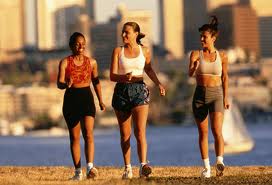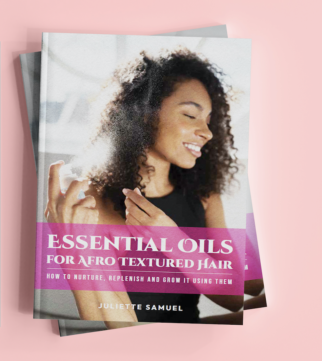
Whether it snuck up on you during your most recent vacation or you have been battling it for years, belly fat is notoriously challenging to shift.
The medical name for belly fat is “visceral fat” and while it may be an unwelcome visual when you are trying to squeeze into a pair of jeans, it is also potentially life threatening.
Risk factors include type 2 diabetes, heart disease and cancer. (These diseases are especially prevalent in the African-American community where obesity in adults is 1.5 times as common compared with white adults. Further, 35.1% of black children are overweight, compared to 28.5% of white children.)
What Causes Belly Fat?
1) Nutrition
Nutrition plays a huge role. Here are some of the worst culprits, which are toxins as well as belly-fat producers:
- Sugar
- Sugary foods/beverages, eg. bagels, store-bought cakes, doughnuts, white bread, breakfast cereals, soft drinks. Many of these items contain ‘trans-fat’ used to extend their shelf life.
- Alcohol: especially beer, white wine and malt
- Low-protein, high carbohydrate diets, eg. white rice, pasta and white potatoes, fries)
- Commercially-produced fruit juice
- Caffeine in the form of coffee and black tea
- Processed foods, eg. packaged ham, bright yellow packaged cheese slices, dried pasta
- Fried foods
- Pizza and other pastry-based foods
- Sweets and chocolates
NB: Be wary of so-called “low-fat” foods. Very often, they are packed with sugar (to make up for lack of flavor).
Instead, try these healthier alternatives:
- Manuka honey as a sweetener
- Homemade cakes made with fruit instead of sugar, fruit and raw nuts, rye bread, eggs
- Red wine (has anti-oxidant properties)
- Brown/wild rice, baked potato, raw, organic, unsalted nuts
- A whole piece of fruit
- Green tea
- Grilled turkey breast or fish
- Vegetable stir-fry
- Raw nuts
A word about fat. There are ‘good’ fats and ‘bad’ fats.
Good fats are a) monounsaturated fat, typically found in nuts, avocados and olive oil. This fat reduces body fat by speeding up your metabolism; and b) polyunsaturated fat, found mainly in fish and seafood.
Bad fats are trans fats (sometimes referred to as hydrogenated oil) which, as noted earlier, are found in many processed foods.
The healthy eating alternatives work. However, for thousands of African-American families, following this regime remains an elusive ideal because the cost of buying such items regularly, particularly organic food items, is prohibitive.
Less nutritious, calorie-dense foods are far less expensive and, insidiously, are disproportionately marketed in predominantly African-American neighborhoods. (It is well documented that liquor stores are also more prevalent in poor, black neighborhoods.)
The challenge, therefore, in many instances, is socio-economic as well as dietary. If you’re on a tight budget, try substituting just one or two of the essentials: white bread for wholegrain; oats instead of sugary breakfast cereals; use canned tuna and salmon, and frozen veg; use meat in stews/soups that will stretch over two or three days. If fish is pricey, try an affordable fish oil supplement.
2) Inactivity
Being inactive slows your metabolic rate. You need to burn off those calories with 30 minutes of cardio exercise per day.
3) Menopause
Hormonal changes can lead to weight gain around the middle.
4) Stress
Stress can lead to the secretion of cortisol from our adrenal gland, which leads to weight gain. Studies have shown that women who have large waists in proportion to their hips secrete more cortisol when stressed.
5) Genetics
Some studies have concluded that obesity in adults is between 40% and 70% genetically determined, but that does not mean it is ‘game over’ if you are fighting the flab. You may have to work a little harder, but changing your eating and exercise habits can re-train your body and reduce your health risks.
How to Work Out and Minimize Belly Fat and Bloating
How do you cut down on belly fat and bloating? You know the deal, honey! Cardio! Exercising for 30 minutes, 5 days a week, at a pace to get your heart rate up: walk, jog, swim, bicycle, do aerobics, dance!
Note: don’t be tempted to jump straight into sit-ups or crunches – those exercises will strengthen the muscles underneath the fat, but will do very little to move the belly fat itself.
Once you have shifted the bulk of the fat, you can then introduce planks into your workout – they’ll tone abdominals without the neck and spine strain that is often associated with sit-ups/crunches.
Try burpies (begin in a push-up position and jump to your feet, hands straight up in the air. Land and crouch, with your hands on the floor beside your feet, then kick your feet out to return to the original push-up position. Repeat 15 times.)
Lunges and Squats are also great for burning fat.
Try exercising with a friend or group – you’d be surprised at the difference the support makes.
Belly bloating (caused by habits as variable as a high salt diet, menstrual periods, drinking through a straw, chewing gum and eating beans) can be exasperating. Exercise can help here, too, but also try an Epsom Salts bath for a temporary, quick-fix. The salts are full of magnesium which encourages the body to shed toxins quickly. Add two cupfuls to a hot bath and soak in it for approximately 20 minutes, twice a week.
For a more detailed and targeted approach to shifting your belly fat, consult your doctor or a nutritionist. Stay positive and whether your motivation to lose belly fat is a healthier body, getting into those fabulous jeans or a special occasion, be patient and don’t give up!
That’s it for this week! As always …
Dedicated to Your Beauty,
Juliette Samuel
Esthetician/Author/Publisher




 Facebook
Facebook Twitter
Twitter Delicious
Delicious Digg
Digg Myspace
Myspace StumbleUpon
StumbleUpon Youtube
Youtube